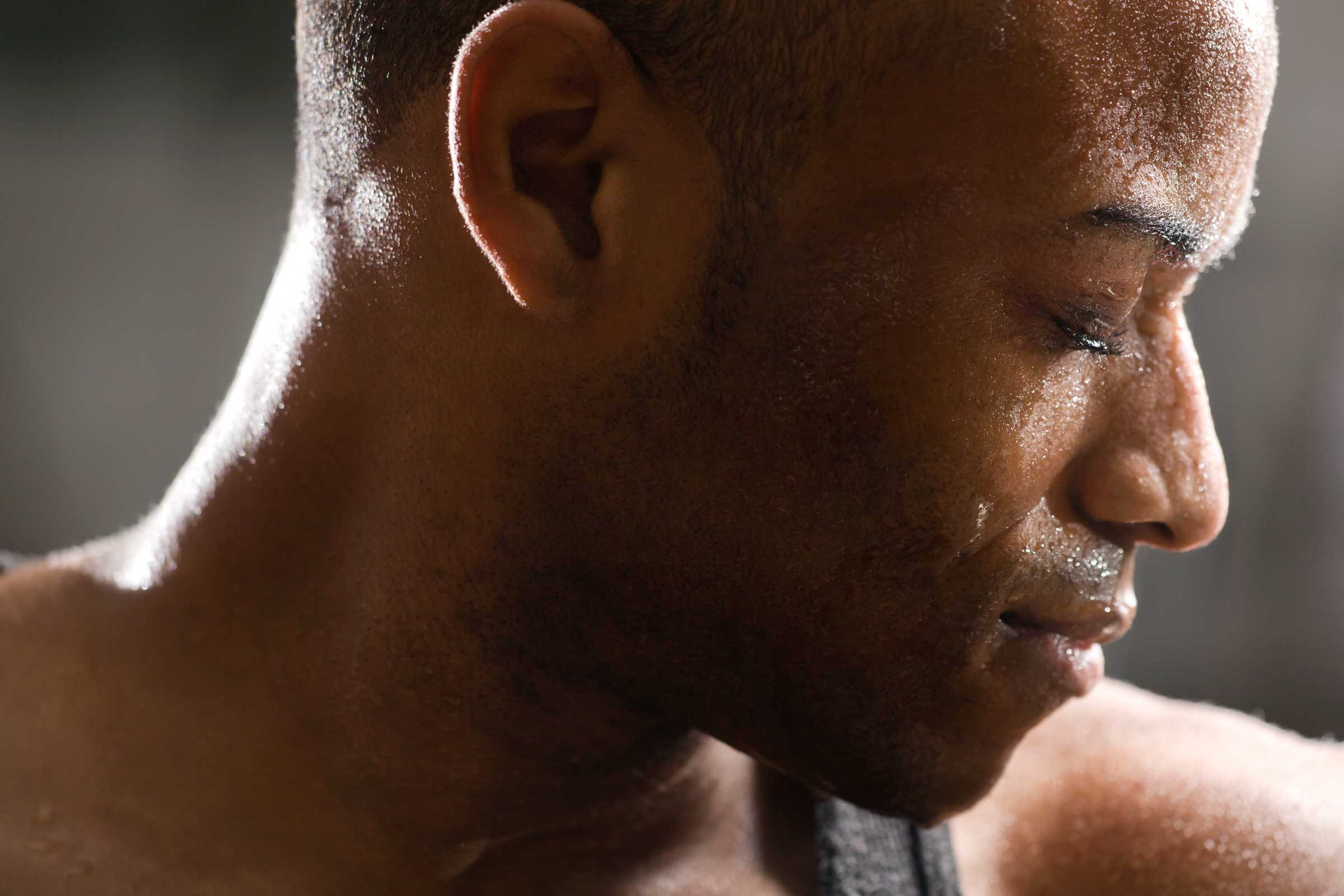9 Signs That Could Mean You’re Not Getting Enough Vitamin D BY STACEY FEINTUCH ( courtecy;- reader's digest )
- লিঙ্ক পান
- X
- ইমেল
- অন্যান্য অ্যাপ
9 Signs That Could Mean You’re Not Getting Enough Vitamin D
If you're constantly getting sick, feel tired for no reason, and find yourself prone to stress fractures, a vitamin D deficiency could be why.
A quick vitamin D primer
 ISTOCK/STELE10
ISTOCK/STELE10
You walk in the sunshine every day (wearing your SPF of course). You eat right. You get enough sleep. But you still may be missing something even if you’re doing all the right things—vitamin D. Though rare, severely low levels of vitamin D can cause rickets in children and osteomalacia (softening of the bones) in adults. Left untreated, these conditions can lead to bone pain, soft and brittle bones, and muscle pain and weakness, according to the Cleveland Clinic. But recent research has suggested a connection between even moderately low levels of vitamin D and a number of surprising health conditions, including diabetes, osteoarthritis, and cancer. Here are a few sneaky signs that you might not be getting enough vitamin D. If you feel that you’re suffering from any of these symptoms, talk with your healthcare provider, who will likely recommend a blood test. This is really the only way to accurately determine your vitamin D level. Then you can discuss ways to boost your levels, typically by taking an over-the-counter supplement.
You’re tired all the time
 ISTOCK/GOLERO
ISTOCK/GOLERO
If you aren’t getting enough vitamin D, you may feel completely exhausted, even if you get plenty of sleep. “There is mounting evidence that vitamin D deficiencies are associated with fatigue and sleep disorders,” says Catherine G. R. Jackson, PhD, a professor of kinesiology and exercise science at California State University in Fresno. A study in the North American Journal of Medical Sciences found that low vitamin D levels were prevalent in people who are fatigued. Taking more vitamin D helped improve their symptoms. Here are other sneaky reasons you may be tired all the time.
You’re depressed
 ISTOCK/GOFUGUI
ISTOCK/GOFUGUI
Having the blues may be linked to an insufficient amount of vitamin D. According to the Vitamin D Council, vitamin D receptors have been found in many parts of the brain, including in areas linked to depression. Research shows a link between low levels of vitamin D in the blood and depression symptoms. But it’s still unclear exactly what that link is—whether low vitamin D levels develop because someone is depressed or whether low vitamin D levels may actually cause depression. Pay attention to these 8 warning signs of depression.
Your forehead is often sweaty
 ISTOCK/THOMAS_EYEDESIGN
ISTOCK/THOMAS_EYEDESIGN
Sweatiness on the forehead is one of the first classic noticeable signs of vitamin D deficiency. If you look like you’re glowing even when your body temperature and activity levels are normal, you may need more vitamin D. Try eating more of these vitamin D-rich foods.
Your bones hurt
 ISTOCK/PEOPLEIMAGES
ISTOCK/PEOPLEIMAGES
Adults who don’t get enough vitamin D often have aches and pains in their muscles and bones, especially in the winter. Their joints are also a little stiffer in the morning. “Many aches and pains are symptoms of the classic vitamin D deficiency, osteomalacia,” says Sonya Angelone, MS, RDN, spokesperson for the Academy of Nutrition and Dietetics. Soft bones are more likely to bow and fracture than ones that are healthy and hard.
You’re experiencing erectile dysfunction
 ISTOCK/KTSIMAGE
ISTOCK/KTSIMAGE
If you or your sexual partner is suffering from erectile dysfunction (ED), lack of vitamin D may be to blame. A study in the Journal of Sexual Medicine found that men with severe ED had significantly lower levels of vitamin D than those with mild cases of ED. Men diagnosed with ED often have cardiovascular disease, which is also associated with a lack of vitamin D. Some experts suggest that treating a vitamin D deficiency may decrease the risk of ED, says Angelone.
You're prone to stress fractures
 ISTOCK/LZF
ISTOCK/LZF
“Most people think of a lack of calcium when talking about bone health, which is true. However, without vitamin D, calcium doesn’t get absorbed properly,” says Jennifer Giamo, a nutritionist, certified personal trainer, and founder of New York City-based Trainers in Transit (who has also run seven marathons). “Vitamin D, specifically D3, which increases calcium absorption, is critical to preventing bones from becoming thin and brittle.” A study in The Journal of Foot and Ankle Surgery found that people who participate in higher-impact activities may need greater levels of vitamin D to reduce their risk of stress fractures. Make sure you know these signs of a calcium deficiency.
Your athletic performance could be better
 ISTOCK/GEBER86
ISTOCK/GEBER86
Insufficient vitamin D may impact your fitness levels and muscle function. “You may not even realize you’re not performing at your best,” says Paige Waehner, a certified personal trainer, author of The About.com Guide to Getting in Shape and the Exercise Expert at About.com. An analysis published in the American College of Sports Medicine’s Health & Fitness Journal found that vitamin D supplements improved the physical performance in those diagnosed with vitamin D deficiency. “Vitamin D deficiency is linked to increased inflammation. And after intense exercise, the body is inflamed,” says Giamo. “If adequate amounts of vitamin D are already in the bloodstream, then the speed of recovery from intense exercise is increased.” Giamo warns, though, not to take vitamin D supplements if you aren’t deficient in the nutrient because it’s unlikely you’ll improve your athletic performance or recovery rate. “Since vitamin D is a fat-soluble hormone that doesn’t get excreted by the body, it could be potentially harmful if you take too much,” says Giamo.
You can’t get a good night’s sleep
 ISTOCK/KATARZYNABIALASIEWICZ
ISTOCK/KATARZYNABIALASIEWICZ
Researchers found that people who took more vitamin D had a 16 percent lower risk of having trouble getting a full night’s sleep, according to a study published in the Journal of Sleep Research. Another large study looked at 1,500 neurological patients over a two-year period who also had abnormal sleep. “The sleep improvement with [vitamin D] supplementation was measurable,” Dr. Jackson says.
You catch everything going around
 ISTOCK/OJO_IMAGES
ISTOCK/OJO_IMAGES
Colds, viruses, the flu: You name it, you get it. “Vitamin D deficiencies are associated with depressed immune systems,” says Dr. Jackson. “You’ll catch whatever is going around if your immune system isn’t functioning properly.” A study in the Archives of Internal Medicine found that adults who have low levels of vitamin D are more likely to report having had a recent cold, cough, or upper respiratory infections. Higher levels of vitamin D may also help decrease recovery time from the flu.
- লিঙ্ক পান
- X
- ইমেল
- অন্যান্য অ্যাপ
মন্তব্যসমূহ
একটি মন্তব্য পোস্ট করুন